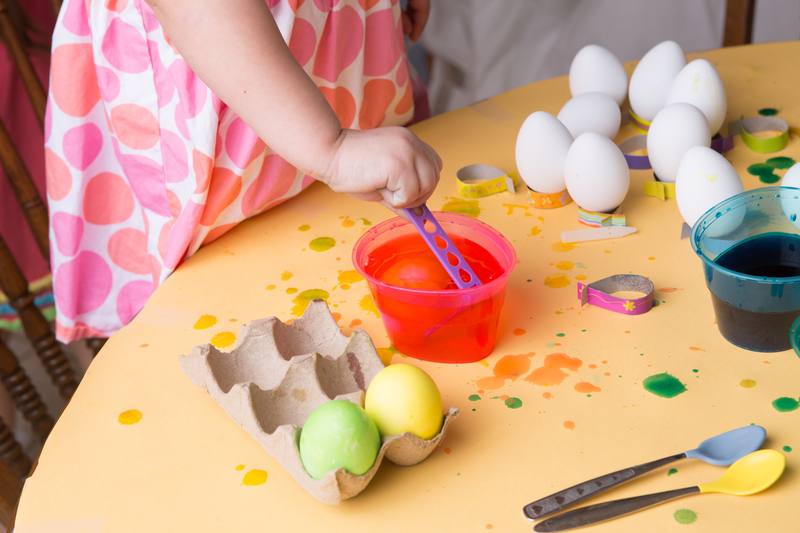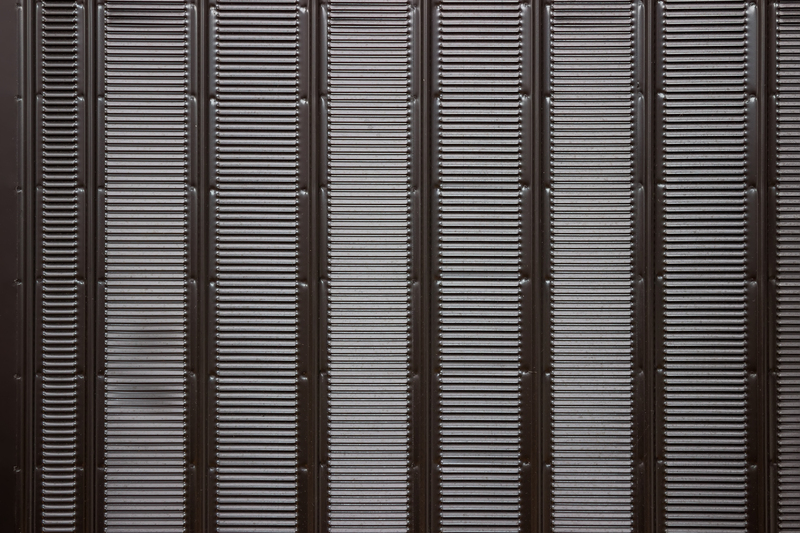Discover Professional Jewellery Cleaning Methods at Home
Posted on 03/06/2025
Discover Professional Jewellery Cleaning Methods at Home
Jewellery isn't just a fashion statement--it's a precious investment and often holds deep sentimental value. Over time, even the most stunning pieces can lose their original sparkle due to dust, sweat, lotions, and everyday wear. While you may consider visiting a jeweller for professional cleaning, you can achieve professional jewellery cleaning at home using proven techniques, safe products, and a touch of care. This comprehensive guide explores professional jewellery cleaning tips, tricks, and detailed instructions so you can bring back the brilliance of your favourite pieces from the comfort of your home.

Why Clean Your Jewellery at Home?
- Cost-effective: Regular home cleaning prevents the need for frequent professional services, saving you money.
- Convenience: Easily clean your entire collection anytime, without needing appointments or travel.
- Maintenance: Proactively caring for jewellery ensures longevity and preserves beauty and value.
- Hygiene: Regular cleaning removes bacteria, skin oils, and contaminants that accumulate on surfaces.
Learning about expert jewellery cleaning methods at home empowers you to keep your treasured pieces in perfect condition, maximising their shine for years to come.
Understanding Jewellery Materials and Their Unique Cleaning Requirements
Every piece of jewellery is unique, and so are its cleaning needs. Understanding your jewellery's material is essential before applying any cleaning method at home. Some gemstones and metals require extra care and strict avoidance of certain chemicals.
Common Jewellery Materials:
- Gold (Yellow, White, Rose): A soft, non-tarnishing metal, but prone to scratches.
- Silver: Tends to tarnish over time due to contact with air and moisture.
- Platinum: Durable, resists tarnish but can develop surface patina.
- Diamonds and Cubic Zirconia: Tough gems, but dirt can dull brilliance.
- Emeralds, Opals, Pearls: Soft, porous stones. Require very mild cleaning solutions.
- Costume Jewellery: Usually made of base metals and rhinestones--more susceptible to damage.
Always identify the materials in your jewellery before attempting any professional cleaning techniques at home.
Professional Jewellery Cleaning Methods for Different Styles
To achieve professional results with your at-home jewellery cleaning, use methods tailored to both the type of material and the style of the item. Below, we break down the safest and most effective approaches for most common types of jewellery.
1. Gentle Soap and Water: Your Universal Jewellery Cleaning Solution
- Perfect for: Gold, Platinum, Diamonds, Some Gemstones
- Tools Needed: Mild dish soap, warm (not hot) water, a soft toothbrush, a lint-free cloth
- Mix Solution: Create a bowl of warm water with a few drops of dish soap.
- Soak: Place your jewellery in the solution for 15-20 minutes.
- Brush Gently: Use a soft toothbrush to reach behind stones and inside settings.
- Rinse Thoroughly: Rinse under clean, lukewarm water--ensure your sink has a plug or use a bowl!
- Dry and Polish: Pat with a soft, lint-free cloth.
Tip: This technique is best for hard stones like diamonds, sapphires, and rubies. Avoid for pearls, opals, and other soft stones.
2. Baking Soda and Water Paste for Silver Jewellery
- Perfect for: Sterling Silver Jewellery, Silver Chains
- Tools Needed: Baking soda, water, a microfiber cloth
- Form Paste: Mix three parts baking soda to one part water for a thick paste.
- Apply: Use a soft cloth to gently rub the paste onto the silver, focusing on tarnished areas.
- Rinse: Completely rinse away all paste residues.
- Buff: Polish with a clean, dry cloth for a brilliant shine.
Never use this method on gemstones or pearls set in silver, as the baking soda can scratch delicate stones.
3. Aluminium Foil, Salt & Baking Soda Bath for Heavy Tarnish
- Perfect for: Heavily Tarnished Solid Silver Pieces (without stones)
- Tools Needed: Aluminium foil, a bowl, salt, baking soda, hot water
- Line Bowl: Line the bottom of your bowl with aluminium foil (shiny side up).
- Add Ingredients: Add one tablespoon each of baking soda and salt.
- Pour Hot Water: Carefully submerge your silver jewellery.
- Soak: Allow it to sit for 5-10 minutes.
- Rinse and Dry: Rinse well and dry with a soft cloth.
Warning: Do not use this cleaning technique on jewellery containing gemstones as it can damage certain stones.
4. Ammonia Solution for Diamonds and Gold
- Perfect for: Gold and Diamond Jewellery
- Tools Needed: Ammonia, lukewarm water, bowl, soft brush
- Mix Solution: Combine six parts water to one part ammonia.
- Soak: Drop your gold and diamond pieces in for only 1 minute.
- Rinse Thoroughly: Wash off any lingering ammonia with cool water.
- Dry: Dry with a soft lint-free cloth.
Use caution: Ammonia can damage some metals and softer gemstones. Never use this solution on pearls, opals, or costume jewellery.
5. Special Care for Pearls, Opals, and Porous Gems
Delicate gems such as pearls, opals, turquoise, and coral require extra gentle handling. Harsh chemicals and soaking can cause irreversible damage.
- Use Damp Cloth: Wipe gently with a soft, slightly damp cloth (water only).
- Don't Submerge: Avoid soaking pearls and porous gems in any liquid, as water can weaken stringing threads and harm the stones.
- Let Air Dry: Lay the jewellery on a cloth to dry completely before storing.
- Store Carefully: Pearl necklaces and delicate items should be stored flat to prevent stretching or tangling.
6. Toothpaste - Myth or Marvel?
Some sources recommend toothpaste as a home jewellery cleaner, owing to its slightly abrasive qualities. However, toothpaste can easily scratch metals and delicate stones. If you must use it, opt only for the plain, non-gel variety and do a spot test on an inconspicuous area. For best results and safety, stick to milder cleaning solutions described above for effective at-home jewellery cleaning.
Expert Tips to Achieve a Professional Jewellery Finish at Home
- Use a Professional Polishing Cloth: These specialised cloths contain anti-tarnish agents and gentle abrasives. After cleaning, buff your jewellery for a mirror-like shine.
- Inspect Before and After: Examine clasps, prongs, and settings. If stones seem loose, visit a jeweller for professional tightening--never risk valuable pieces.
- Try Ultrasonic Cleaners: For hard gems (diamonds, sapphires, gold, platinum), compact ultrasonic devices can deliver a true professional-level clean at home. Always follow manufacturer instructions and never use for pearls or soft gems.
- Avoid Harsh Chemicals: Chlorine bleach, acetone, and commercial cleaners not designed for jewellery may severely damage most pieces.
- Dry Thoroughly: Moisture trapped in settings can cause long-term damage. Pat dry meticulously before storage.
Common Mistakes to Avoid When Cleaning Jewellery at Home
- Using Abrasive Scrubs or Hard Brushes: Even metals like gold and silver can scratch easily. Always choose soft bristles or cloths.
- Soaking Delicate Gemstones: Porous stones and pearls can be ruined by submersion in water or cleaning solutions.
- Exposed to Harsh Chemicals: Regular exposure can cause permanent discolouration or weakening of jewellery settings.
- Forgetting to Inspect the Settings: Loose stones can easily be lost during cleaning. Check and secure them before and after.
- Ignoring Manufacturer Guidelines: Many high-value pieces come with care instructions. When in doubt, check with your jeweller.
How to Care and Store Jewellery After Cleaning
Proper care post-cleaning is key for preserving that freshly-cleaned, sparkling look. Here are pro tips to keep your jewellery radiant:
- Store Separately: Keep pieces in individual pouches or lined boxes to avoid scratches and tangles.
- Anti-Tarnish Strips: Place these with silver jewellery to minimise tarnishing between cleans.
- Avoid Moisture: Store items in a cool, dry area. Consider silica gel packets in your jewellery box.
- Rotate Your Collection: Wearing the same items daily accelerates wear. Switch regularly to reduce build-up.

Frequently Asked Questions about Professional Jewellery Cleaning at Home
How often should I clean my jewellery at home?
For frequently worn items, such as wedding rings or daily necklaces, a gentle clean once every two weeks is ideal. Silver pieces may require monthly attention, while special-occasion jewellery can be cleaned seasonally.
Can I clean all my jewellery in the same way?
No. Each material has specific cleaning needs. Cleaning delicate gems with harsh chemicals or abrasives can cause irreparable damage. Refer to the guidelines above for each type.
Is ultrasonic cleaning safe for all jewellery?
Ultrasonic cleaners are safe for diamonds, gold, and platinum--but never use them on pearls, opals, emeralds, or costume jewellery, as vibrations can crack or loosen settings.
Can vinegar be used to clean jewellery?
While vinegar is great for basic all-purpose cleaning, avoid using it on soft stones or pearls as its acidity can cause harm.
What if my jewellery is very valuable or antique?
If unsure, or if your jewellery is exceptionally valuable or antique, consult a professional jeweller. For some items, professional cleaning and inspection may be required to ensure safety.
Conclusion: Enjoy Sparkling Results with Pro-Level Jewellery Cleaning at Home
With the right tools, ingredients, and a careful approach, anyone can achieve professional jewellery cleaning results from the comfort of their home. By regularly applying the pro cleaning techniques outlined above, you can maintain the lustre and value of your favourite pieces, ensuring they shine for generations. Always handle jewellery with care, adapt your cleaning method to the specific material, and enjoy the satisfaction of glittering, beautiful jewellery every day.
Start your journey to radiant, well-maintained jewellery today and enjoy the confidence that comes with a dazzling collection--all thanks to professional jewellery cleaning methods at home.
Latest Posts
Experience a Cleaner Home: Unlock the Secrets of Our Deep Clean Checklist
The Ultimate Guide to Maintaining a House Cleaning Regimen
The Ultimate Guide to Removing Stubborn Burnt-on Residue Efficiently




